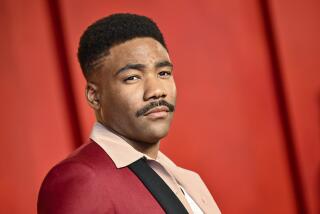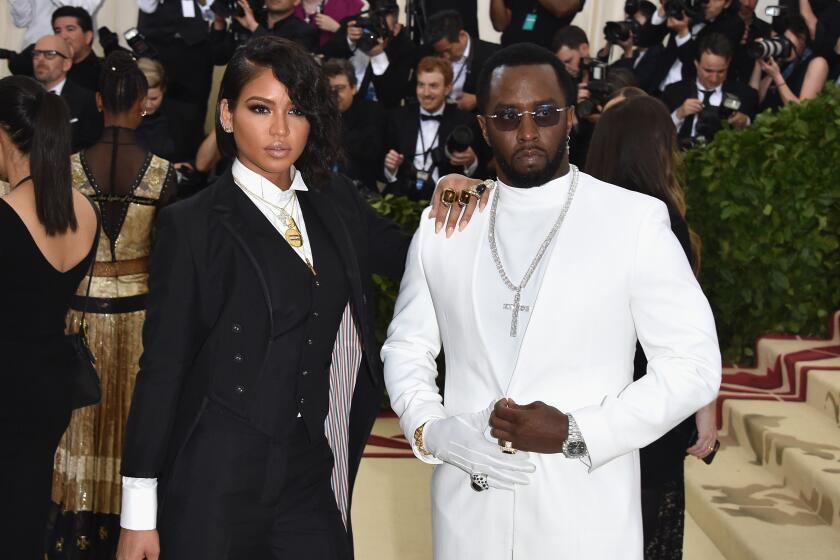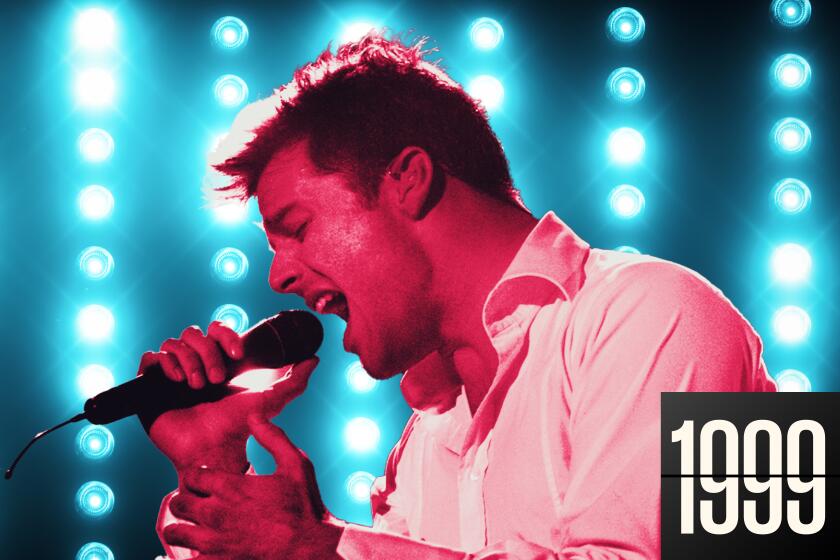O’Farrill, Always Most Alive in His Music
It was a brutally cold, windy night last February in Manhattan, and as he bundled up to go out and conduct his big band at a local club, the great Cuban arranger, composer and bandleader Arturo “Chico” O’Farrill looked alarmingly frail. A titan of Latin music for more than five decades, he had been ill for some time and the illness had taken its toll. An elf of a man with a mischievous glint in his eyes that gave him a timeless quality, he now looked just small, suddenly old.
At the appointed time, O’Farrill stood before his orchestra and, after a quick introduction, he counted off, the music exploded and there he was, at work.
It was electrifying.
He played his big band as if willing the music, his music, out of the musicians. He conducted with small, crisp gestures. He was in control. For the ensemble passages, he leaned forward, listening intently as if to account for every note. He pointed at individual players, his eyes darting from section to section, now coaxing them, now reining them in. He seemed all business--then he would wink or offer a musician a quick nod of approval. He examined the scores before him with a peculiar curiosity, as if they were someone else’s. Now and then he allowed himself the slightest of smiles.
At that moment, he was young and strong. He was where he was supposed to be.
O’Farrill died last Wednesday at 79. Born in Havana of an Irish father and a Cuban mother of German descent, he was a jazz musician and fan who found his Cubanidad in New York. His father had sent him to a military academy in Georgia, hoping to instill some discipline in his truant son. Instead, “my interest in jazz started there,” O’Farrill once recalled with relish. “There is where I started listening to the great big bands on the radio . . . It was the revelation of a lifetime.”
Back in Cuba, he began playing in small groups and studying music. After he discovered bebop, he decided he had to go to New York. “I was not very interested in Afro-Cuban music at that time,” he recalled. “I found it simple-minded. Of course I hadn’t heard Mario Bauza and Machito. They were in New York but we didn’t know what they were doing. That’s when I saw the possibility of mixing jazz techniques--harmony, melodies, phrasing--with the Afro-Cuban concept.”
He had an apprenticeship in big-band writing, working as an uncredited or “ghost” arranger, which led to stints with Goodman and Count Basie, among others. But his signal contribution was to take Afro-Cuban jazz from the ballroom to the concert hall, showing both fans and doubters the extraordinary possibilities of this music. Others might have created the genre and still others might have been touted as kings of this and that, but it was O’Farrill who, in the apt line of Nat Chediak, author of the Dictionary of Latin Jazz, “was the first one who put Latin jazz in black tie and tails.”
Some of his masterworks, such as his “Afro-Cuban Jazz Suite,” “Manteca Suite,” “Gold, Frankincense and Myrrh,” “Three Afro-Cuban Jazz Moods” or his “Second Afro-Cuban Jazz Suite” are the high-water marks of orchestral Latin jazz. His palette of sonorities, use of rhythm, melodic ideas and concepts of form and development set O’Farrill apart.
He also could write three-minute dance pieces and small concertos, blues and 12-tone pieces, sly, dazzling variations of “La Cucaracha” and serious chamber music. He composed and arranged for Machito, Dizzy Gillespie, Charlie Parker and Wynton Marsalis--but also for David Bowie and Ringo Starr.
And when in the mid-1960s he became disillusioned with the economics of jazz and there were family needs to be met, he turned to commercial work.
His second career started in 1995, and the three recordings from this period show a master at the top of his craft. He revisited old works and he wrote new pieces, and all his music suggests a hard-earned strength and clarity.
In a recent conversation, he smiled wanly at the suggestion of how satisfied he must have felt about his rediscovery. “Satisfaction?” he said with his typical rasp. “The satisfaction was getting out of the commercial world and start playing again with a big band, coming back to do what I love to do.”
More to Read
The biggest entertainment stories
Get our big stories about Hollywood, film, television, music, arts, culture and more right in your inbox as soon as they publish.
You may occasionally receive promotional content from the Los Angeles Times.






